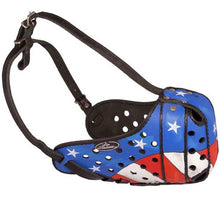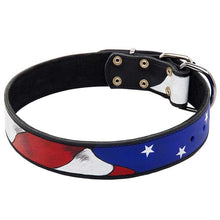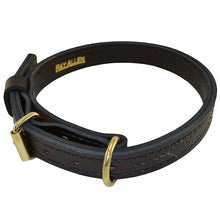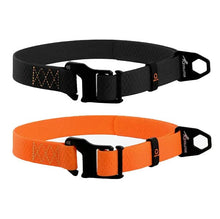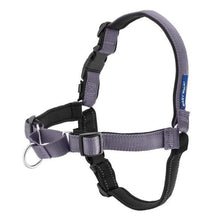How, When, And Why To Correct A Dog

Training your dog is just as important to their well-being as healthy food and veterinary care. Not only does it teach them what you expect from their behavior, it is also good for their mental and physical health.
For instance, dog training challenges the dog to use their mind, usually in conjunction with some sort of physical activity. Dogs like to please and it makes them happy when they’re praised for a good job. Expending mental and physical energy also helps improve overall behavior.
Working breeds, such as German shepherds, like to work. Training and exercise fulfills that innate need. They’re also very smart and if they’re not trained, will create their own entertainment when bored. If left to their own devices, they can develop bad habits or become destructive. In addition to preventing unwanted behavior, by taking the time to train, it will improve their relationship with you.
Another benefit of training is that it will help build trust between the two of you all while building your dog’s confidence. Raising a confident dog is one of the best things you can do for any dog but it’s especially important for powerful, intelligent breeds, such as a German shepherd.
When a dog is confident and trained, you can take them anywhere and will enjoy them more. They’re trustworthy and happier because they’re well socialized. They’re not overly shy, worried, nervous, or fearful. They’re not overly aggressive, or over protective, and they don’t engage resource guarding. They have less problems with anxiety in new situations because they know what is expected of them and they know what they can expect from you, which is leadership. They won’t embarrass you in public.
How to Correct Unwanted Behavior
Basic training includes correcting unwanted behavior. It will teach your dog what is acceptable and what’s not. It will teach your dog to listen to you, even with distractions, and your dog will learn to look to you for guidance.
Correcting unwanted behavior is just as important as praising good behavior. Dogs don’t set out with a premeditated mindset to be ‘bad’ or ‘naughty.’ They need training and guidance rather than punishment. Punishment creates fear and anxiety. Meanwhile, training builds confidence and will improve the relationship with your dog.
Training should start on the day you bring your dog home. Make it a habit to praise good behavior. When your dog does something right, let them know otherwise they won’t know they’ve done something good. Mix rewards up between treats, attention, and toys.
Set your dog up for success by removing temptations, such as a meaty treat left on the edge of the counter or the soft leather shoe that is so appealing to a teething puppy. It’s easier to prevent bad habits than to fix them later. As your dog learns and matures, they will know the rules and hopefully be past, for example, the shoe chewing stage.
Some basic training commands include:
• Sit
• Down
• Leave it
• Take it
• Come
• Stay
• Watch me
• Wait
• Off
• Drop it
• Leave it
• Heel
• Bed
• Car
• Quiet
• Speak
• No
When Should You Correct Unwanted Behavior?
Assuming that you’ve taught your dog basic commands, when they do something unwanted they should be corrected in the moment. Correcting something that happened hours before is not very helpful.
When correcting give them a firm command such as no, leave it, drop it, down, etc. Before this can work though, they need to learn and understand those commands first. Dog training is a step-by-step process and many new owners struggle with this. They think their dog should just know what is being asked of them or ‘get it’.
Once the dog follows your command, praise them. It’s not helpful to yell, hit, or otherwise ‘punish’ a dog as it doesn’t teach anything other than to be fearful…that something bad is about to happen. A firm command that they already know how to follow along with praise when they obey is usually all you need for most situations.
Why Should You Correct a Dog?
If you don’t show your dog what is unacceptable, they won’t know what is. Simple as that. They have to learn what you want from them and each situation is different. One owner may not want their dog on the couch, while another loves their dog right at their hip as they watch television.
The owner/family should decide what the rules for the dog are and everyone should follow them. Otherwise it will send mixed signals to the dog and create bad habits down the road. Consistency is loving and sends a clear message to the dog of what the rules and boundaries are.
Some benefits of correcting unwanted behavior include:
You can trust your dog almost anywhere
Heels on a leash
Doesn’t go wild over distractions
Is accepting of other dogs and strangers
Doesn’t jump
Doesn’t bite from fear or aggression
Doesn’t guard their food, toys, or bed
Allows physical exams by you and veterinarians
Allows grooming
Doesn’t bolt
Comes when called
Knows how to greet people
Takes food gently
Is trustworthy
Will drop or spit out something dangerous
Will willingly go to a place, such as their crate or bed when asked
Knows how to ride in a car
By taking the time to correct behavior and praise good behavior, your dog will have a much better life. Dog training should be fun and rewarding for both you and your dog. It should be a pleasure not a stress to spend time with your furry best friend.
As you know, too many dogs are surrendered to shelters or abandoned simply due to lack of training. By training your own dog, you instantly become an example to the community about what is possible with a well-trained dog and an ambassador for your breed.
We hope you’ve found this information helpful. Please pass it along to your family and friends.
You may also like: 29 Essential Training Commands To Teach Your German Shepherd




